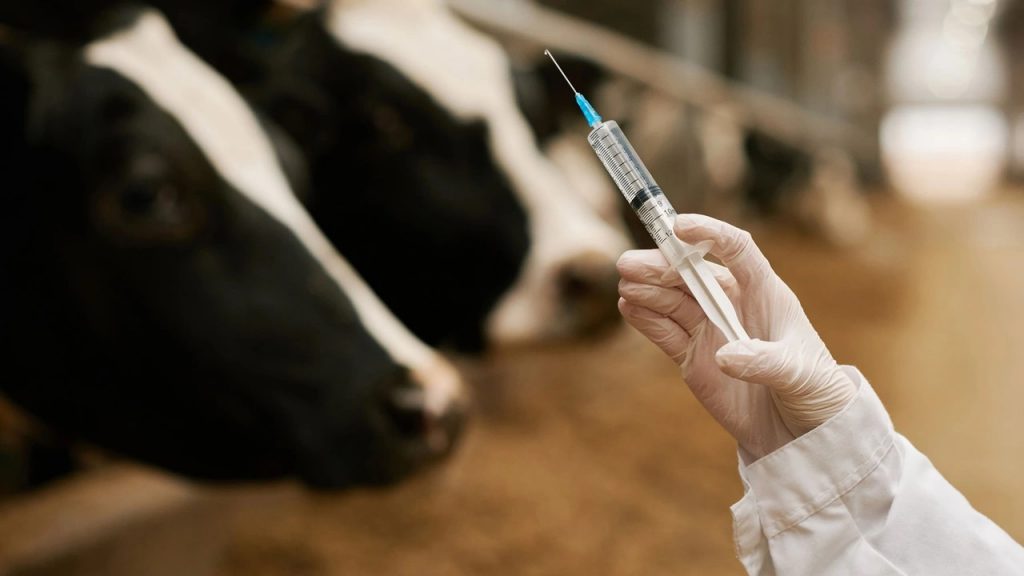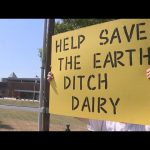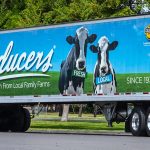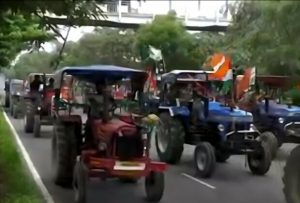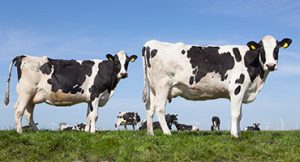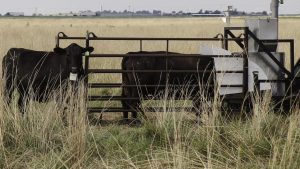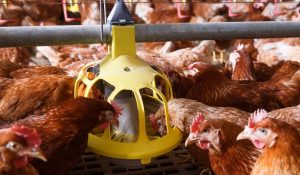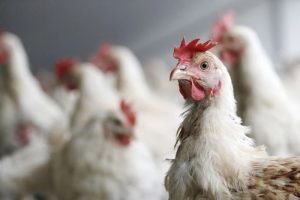
Medgene, a South Dakota company, says its avian flu vaccine for dairy could come early next year.
A recent decision by USDA could pave the way for an H5N1 avian flu vaccine for dairy cows by as early as the first quarter of next year.
Highly pathogenic avian influenza in dairy cattle was first detected in March. Since then, 203 cases have been confirmed in 14 states.
The Center for Veterinary Biologics recently put out a notice that allows H5N1 field vaccine studies to occur outside containment facilities with some of the strictest biosecurity measures. This could allow companies that are developing H5N1 vaccines to perform studies quicker, and for USDA to get a vaccine approved sooner.
Gary Bosch, executive vice president of Medgene, a South Dakota-based company that develops vaccines using prescription platform technology, says it could start field studies on a vaccine in weeks, pending approval of its testing protocol by the Center for Veterinary Biologics.
Before the USDA notice, the only way companies could test a vaccine for H5N1 was in biosecurity level-3 labs, the second-highest level of biosecurity lab in the country. Bosch notes that only a few labs in the U.S. can handle cattle.
“What the notice does is it changes that so that you can take vaccines, non-replicating vaccines, into the field, into field evaluations or field studies with animals in the field, and don’t have to throw away milk or meat,” Bosch says.
“It creates a better pathway for us to be able to test this vaccine in lactating animals. It doesn’t guarantee that we’ll be able to sell or distribute vaccine. That’s clear in the notice as well. But what it does do is it gives us a chance to test our vaccine and provide the information back to USDA and CVB, if they approve our protocols.”
Medgene’s prescription platform technology is a “plug-and-play” vaccine development process that allows researchers to insert a gene or genes into a vector, or backbone, to quickly develop a vaccine. The company likens it to a “pod beverage maker,” where the machine to make the vaccine has been made. All that’s required are the pods, in this case inserting genes to make a particular vaccine.
The company has developed vaccines for rabbit hemorrhagic disease and for several diseases affecting pigs.
Vaccine development moving quickly
According to a June 12 report by Reuters, at least 24 companies were working to develop an avian flu vaccine for cattle — including Zoetis, which started developing a vaccine for dairy cattle in spring, and Merck Animal Health.
Kim Gorode, director of global companion and livestock communications for Merck, said in a written statement that the company does not disclose its vaccine pipeline, but “we can share that the company has an extensive, ongoing research program that is focused on discovering and developing vaccines that are DIVA [differentiating infected from vaccinated] technology and address the holistic issues associated with avian influenza. Merck Animal Health is evaluating technologies and strategies that allow timely responses to emerging diseases, including HPAI in cattle.”
At the recent Farm Progress Show, Tom Vilsack, ag secretary, said the department had approved its first field trial for avian influenza in dairy cattle, stating that it was the next step in the development of a vaccine that he hopes will be available in the “near term.”
Bosch says the best-case scenario for its vaccine is the first quarter of next year, pending in-field trials and government approval.
200 cases and counting
California has become the most recent hot spot for HPAI in dairy, with two cases confirmed Sept. 10, three cases confirmed Sept. 9 and three cases confirmed Aug. 30 by USDA’s Animal and Plant Health Inspection Service.
One case of the disease was confirmed in Michigan on Sept. 9. The state has had 29 confirmed cases since March. The state with the most confirmed cases is Colorado, with 64.
![]()
Unlike HPAI in commercial poultry, which spreads due to wild birds encountering commercial flocks, the substrain affecting cows — H5N1 2.3.4.4B substrain B3.13 — is believed to spread among people encountering sick animals, by contaminated farm equipment and tools, and from cows that are infected but not showing symptoms.
It is also not as deadly as HPAI in poultry, which has affected more than 100 million birds since it was first detected in February 2022 and leads to entire poultry houses being depopulated.
Symptoms in dairy cattle include reduced milk production; thicker, concentrated, colostrum‐like milk; a decrease in feed consumption; abnormal tacky or loose feces; lethargy; dehydration; and fever. But most cows can recover.
The fact that cows largely recover from the disease may call into question whether it is worth it for a producer to vaccinate their herd. But Bosch says there is a lot unknown about what the virus will do.
“What I don’t think we know very well yet is, what is the long-term impact on the lifetime productivity of an animal?” he says. “And I think those questions still need to be answered. But from what we’re hearing from producers and veterinarians in the field, the long-term milk production impact would be worth putting a vaccine into those animals to prevent the disease.
“I don’t think that H5 is going away. I mean, there are some people saying that, ‘Well, it’ll burn itself out, it’ll go away, it’ll run through the herd, and it will be fine.’ But I don’t think it’s going away. And I think the risks are still out there. The risk that it can reassert itself will continue to exist,” he adds.
You can now read the most important #news on #eDairyNews #Whatsapp channels!!!
🇺🇸 eDairy News INGLÊS: https://whatsapp.com/channel/0029VaKsjzGDTkJyIN6hcP1K
